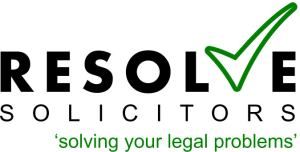Personal Injury Claims
Your Path to Recovery
Suffering a personal injury is an experience that can shatter your physical and emotional well-being, disrupt your daily life, and lead to financial hardships. Whether it's a car accident, a slip and fall, a workplace injury, or any other incident caused by someone else's negligence, you don't have to endure the consequences alone. At Resolve Solicitors, we understand the physical, emotional, and financial toll that personal injuries can exact on individuals and their families. That's why we are committed to providing expert legal guidance and unwavering representation to help you navigate the complex journey of a personal injury claim.
Physical and Emotional Trauma:
Personal injuries can encompass a wide range of physical harm, from minor cuts and bruises to severe and life-altering injuries like spinal cord damage or traumatic brain injuries. These injuries not only result in excruciating pain and suffering but can also lead to long-term disabilities, loss of mobility, and a diminished quality of life. The emotional toll of a personal injury can be equally devastating. Victims often experience a range of emotions, including shock, anger, depression, and anxiety. Coping with the aftermath of an injury can be a significant challenge, affecting not only the injured person but also their loved ones.
Financial Strain:
In addition to the physical and emotional toll, personal injuries can wreak havoc on your financial stability. Medical bills can quickly accumulate, especially for severe injuries that require hospitalization, surgery, or ongoing rehabilitation. These costs, coupled with the loss of income due to time away from work, can push individuals and families to the brink of financial ruin.
The Legal Avenue for Recovery:
When a personal injury occurs due to someone else's negligence or intentional misconduct, the law provides a means for seeking compensation and justice. Personal injury claims are legal actions that allow victims to hold the responsible parties accountable for their actions and recover damages to mitigate the physical, emotional, and financial harm caused by the injury.
Key Components of a Personal Injury Claim Liability and Negligence
One of the central elements of a personal injury claim is establishing liability. This involves demonstrating that another party, typically the defendant, was negligent or acted wrongfully and that their actions directly led to your injury.
Negligence is a key legal concept that hinges on proving the following elements:
- Duty of Care: The defendant owed you a duty of care to prevent harm.
- Breach of Duty: The defendant breached this duty by their actions or failure to act.
- Causation: The breach of duty directly caused your injuries.
- Damages: You suffered actual damages, whether physical, emotional, or financial.
Types of Compensation
In a successful personal injury claim, you may be entitled to various types of compensation, including:
- Medical Expenses: Coverage for past and future medical bills related to your injury.
- Lost Wages: Compensation for income lost due to time away from work during recovery. Damages to account for physical and emotional distress resulting from the injury.
- Property Damage: If the injury involves damage to your property, such as a car in an accident, you may seek compensation for repairs or replacement.
- Punitive Damages: In cases of extreme negligence or intentional misconduct, punitive damages may be awarded to punish the wrongdoer.
Evidence and Documentation:
Building a strong personal injury case requires thorough documentation and evidence gathering.
- This includes:
- Medical Records: Detailed records of your injuries, treatments, and prognosis.
- Accident Reports: Copies of police reports, incident reports, or workplace accident reports.
- Witness Statements: Statements from individuals who witnessed the incident or its aftermath.
- Photographs and Videos: Visual evidence of the accident scene, injuries, and property damage.
- Expert Opinions: Testimony from medical experts, accident reconstruction specialists, or other professionals to support your claim.
Negotiating with Insurance Companies: In many personal injury cases, negotiations with the at-fault party’s insurance company play a significant role in securing compensation. Insurance adjusters may attempt to settle your claim quickly and for a lower amount than you deserve. It’s crucial to have legal representation to ensure that you don’t accept an inadequate settlement that doesn’t fully cover your losses.
While many personal injury claims are resolved through negotiations and settlements, some cases may proceed to litigation if a fair agreement cannot be reached. In such instances, your attorney will prepare your case for court, represent you during trial, and advocate for your rights and interests.
Resolve Solicitors: At Resolve Solicitors, we understand that the aftermath of a personal injury is a challenging and trying time. That’s why we are committed to being your unwavering advocates in pursuing justice and securing.
Key Components of a Personal Injury Claim
Liability and Negligence: One of the central elements of a personal injury claim is establishing liability. This involves demonstrating that another party, typically the defendant, was negligent or acted wrongfully and that their actions directly led to your injury.
Negligence is a key legal concept that hinges on proving the following elements:
- Duty of Care: The defendant owed you a duty of care to prevent harm.
- Breach of Duty: The defendant breached this duty by their actions or failure to act.
- Causation: The breach of duty directly caused your injuries.
- Damages: You suffered actual damages, whether physical, emotional, or financial.
- Types of Compensation: In a successful personal injury claim, you may be entitled to various types of compensation, including:
- Medical Expenses: Coverage for past and future medical bills related to your injury.
- Lost Wages: Compensation for income lost due to time away from work during recovery.
- Pain and Suffering: Damages to account for physical and emotional distress resulting from the injury.
- Property Damage: If the injury involves damage to your property, such as a car in an accident, you may seek compensation for repairs or replacement.
- Punitive Damages: In cases of extreme negligence or intentional misconduct, punitive damages may be awarded to punish the wrongdoer.
- Evidence and Documentation: Building a strong personal injury case requires thorough documentation and evidence gathering. This includes:
- Medical Records: Detailed records of your injuries, treatments, and prognosis.
- Accident Reports: Copies of police reports, incident reports, or workplace accident reports.
- Witness Statements: Statements from individuals who witnessed the incident or its aftermath.
- Photographs and Videos: Visual evidence of the accident scene, injuries, and property damage.
- Expert Opinions: Testimony from medical experts, accident reconstruction specialists, or other professionals to support your claim.
Negotiating with Insurance Companies: In many personal injury cases, negotiations with the at-fault party’s insurance company play a significant role in securing compensation. Insurance adjusters may attempt to settle your claim quickly and for a lower amount than you deserve. It’s crucial to have legal representation to ensure that you don’t accept an inadequate settlement that doesn’t fully cover your losses.
While many personal injury claims are resolved through negotiations and settlements, some cases may proceed to litigation if a fair agreement cannot be reached. In such instances, your attorney will prepare your case for court, represent you during trial, and advocate for your rights and interests.
Resolve Solicitors
At Resolve Solicitors, we understand that the aftermath of a personal injury is a challenging and trying time. That’s why we are committed to being your unwavering advocates in pursuing justice and securing.

FAQ's
After an injury, seek medical attention promptly. Document the scene, gather witness information, and consult with a personal injury attorney as soon as possible.
The validity of your claim depends on factors such as negligence and the extent of your injuries. Consult with an attorney to assess your case.
The statute of limitations for personal injury claims varies by jurisdiction and the type of injury. It's essential to consult with an attorney promptly to ensure you meet the deadlines.
You may seek compensation for medical expenses, lost wages, pain and suffering, property damage, and in some cases, punitive damages to punish the negligent party.
Negligence is typically established by proving that the defendant owed a duty of care, breached that duty, and caused your injuries as a result of the breach. Your attorney will help build this case.
Negligence is typically established by proving that the defendant owed a duty of care, breached that duty, and caused your injuries as a result of the breach. Your attorney will help build this case.
While it's possible to represent yourself, it's highly advisable to consult with a personal injury attorney, as they have the experience and knowledge needed to maximize your compensation.
Many personal injury claims are resolved through negotiations, but if a fair settlement cannot be reached, your case may proceed to trial. Your attorney will prepare and represent you in court if necessary.
The duration varies depending on the complexity of your case, the extent of your injuries, and negotiations with insurance companies. Your attorney will provide a timeframe based on your unique circumstances.
Yes, Resolve Solicitors has extensive experience handling personal injury claims, including those related to medical malpractice. We are dedicated to advocating for your rights and ensuring you receive the compensation you deserve.
Contact Resolve Solicitors today to schedule a consultation. Our compassionate and experienced team will evaluate your case and guide you through the process of pursuing a personal injury claim.



